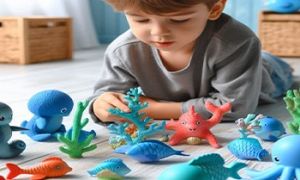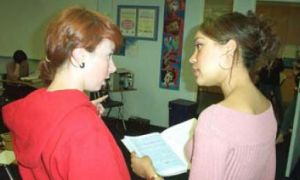Encouragement is a self-esteem enhancing tool that we as childcare professionals should utilize more often. By using encouragement it focuses on the child rather than on the adult. It helps children to feel that we (adults) are interested in them and in what they are doing. It also shows that we have taken the time to notice how they are feeling.
Unlike praise which normally implies a judgement or a reward, by encouraging a child they will begin to develop a more positive sense of self worth and feel comfortable and accepted with themselves. These feelings are enabled when we begin focusing on actual observations rather than preconceived notions on what the child is doing, how they might be feeling and what their needs may be. For instance, a child who is completing a difficult puzzle and looks like they are going to give up, as a responsive childcare professional we should not say “Well Done” because it is not completed and we shouldn't make any sort of judgement. However we should say “Wow, James, I can see you are working really hard on that puzzle. Look you've finished one part of the puzzle already”.
As a childcare professional I know how difficult it can be to implement encouraging language because we have been so used to ‘praising’ ourselves. Even though it can be a little difficult in the beginning, it is important to train ourselves in offering encouraging words to children because it develops a child's self worth and acceptance.
Below are examples of encouraging phrases you could use with your group of children, during different times of the day:
Encouraging Phrases that express Achievement or Difficulty
- You have nearly finished.
- Wow, you did it all by yourself.
- It looks like you've worked really hard on that.
- You're nearly there, you can do it.
- You've definitely put a lot of thought into that.
- It looks like you are really disappointed. How bout we talk?
- It looks like you don't feel like staying there for long and you want to go on to something else.
Encouraging Phrases to use for Independence and Routine Times
- I bet it feels good to have done it by yourself.
- You look so pleased with your new clothes.
- Wow, you went to the toilet all by yourself.
- You must have been very thirsty. You have finished your drink and are ready for another one.
- I can see you have dressed all by yourself.
- You kept your nappy dry, it looks like you are happy about that.
- Looks like you were really hungry; you have eaten everything for lunch.
Encouraging Phrases that express Appreciation For Helping
- Wow, you nearly finished doing that. You must be pleased.
- You have put everything back in its right place. Thank you, I really appreciate it.
- This is pretty tricky but I'm sure you can do it.
- Thanks for doing that, it really saves me time.
- I bet it feels good to do that yourself, rather than waiting for me to do it.
Encouraging Phrases to use with Artwork or Children's Activities
- You've mixed the colours to make a new colour here. Would you like to tell me how you did it.
- Look at all the colours you used in your painting.
- It looks like you are enjoying that.
- You've been concentrating on that for so long, you must enjoy it.
- I can see you have enjoyed using the red paint in your painting.
- It's difficult isn't it but I'm sure you can do it.
It is important we are aware of showing encouragement, which may be as simple as the type of activities and experiences we are providing to the children. Its part of our duty to accept children as individuals and each one needs a range of experiences from simple to rather challenging. Children will try out their skills and feel comfortable about themselves rather than feeling discouraged. Children do not need people to focus on their weaknesses; they need someone, like us, who will appreciate, encourage and acknowledge them.




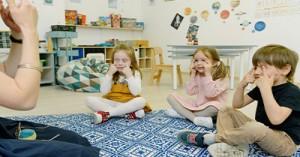
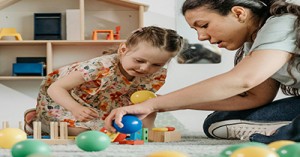
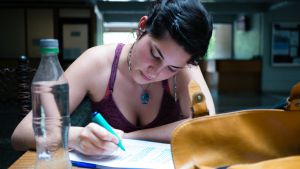
 As an Educator in Australia, your pay rate falls under the Children’s Services Award 2010. This award states the minimum amount that an employer can
As an Educator in Australia, your pay rate falls under the Children’s Services Award 2010. This award states the minimum amount that an employer can When working as a qualified Early Childhood Teacher (with a university degree) within a service, your rate of pay will come from the Educational Services
When working as a qualified Early Childhood Teacher (with a university degree) within a service, your rate of pay will come from the Educational Services When working as a Diploma Qualified Educator your pay rate is from the Children's Services Award 2010. This Award states your minimum rate of pay
When working as a Diploma Qualified Educator your pay rate is from the Children's Services Award 2010. This Award states your minimum rate of pay When working as a Cert 3 Qualified Educator, your pay rate is from the Children's Services Award 2010. This Award states your minimum rate of
When working as a Cert 3 Qualified Educator, your pay rate is from the Children's Services Award 2010. This Award states your minimum rate of Educational Leaders play a crucial role in their early childhood service by ensuring that the educational program aligns with best practices and supports the holistic
Educational Leaders play a crucial role in their early childhood service by ensuring that the educational program aligns with best practices and supports the holistic In early childhood education and care, ratios are more than a technicality—they are a frontline safeguard. Every child deserves responsive supervision, emotional connection, and developmental
In early childhood education and care, ratios are more than a technicality—they are a frontline safeguard. Every child deserves responsive supervision, emotional connection, and developmental With the new national child safety reforms kicking in on 1 September 2025, early childhood services like yours have a real opportunity to lead the
With the new national child safety reforms kicking in on 1 September 2025, early childhood services like yours have a real opportunity to lead the Here’s a comprehensive Mobile Phone and Smart Watch Policy tailored for early childhood education and care (ECEC) services in Australia, aligned with the latest 2025
Here’s a comprehensive Mobile Phone and Smart Watch Policy tailored for early childhood education and care (ECEC) services in Australia, aligned with the latest 2025 The Sea of Fish Challenge is a national initiative that invites children, educators, families, and communities to create and display fish artworks as a symbol
The Sea of Fish Challenge is a national initiative that invites children, educators, families, and communities to create and display fish artworks as a symbol Across the early childhood education and care sector, educators are sounding the alarm: current staffing ratios are insufficient to deliver safe, meaningful, and developmentally appropriate
Across the early childhood education and care sector, educators are sounding the alarm: current staffing ratios are insufficient to deliver safe, meaningful, and developmentally appropriate